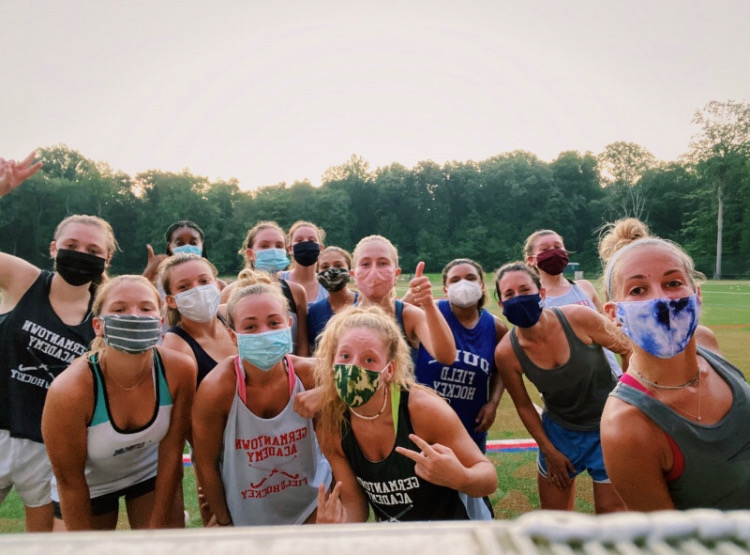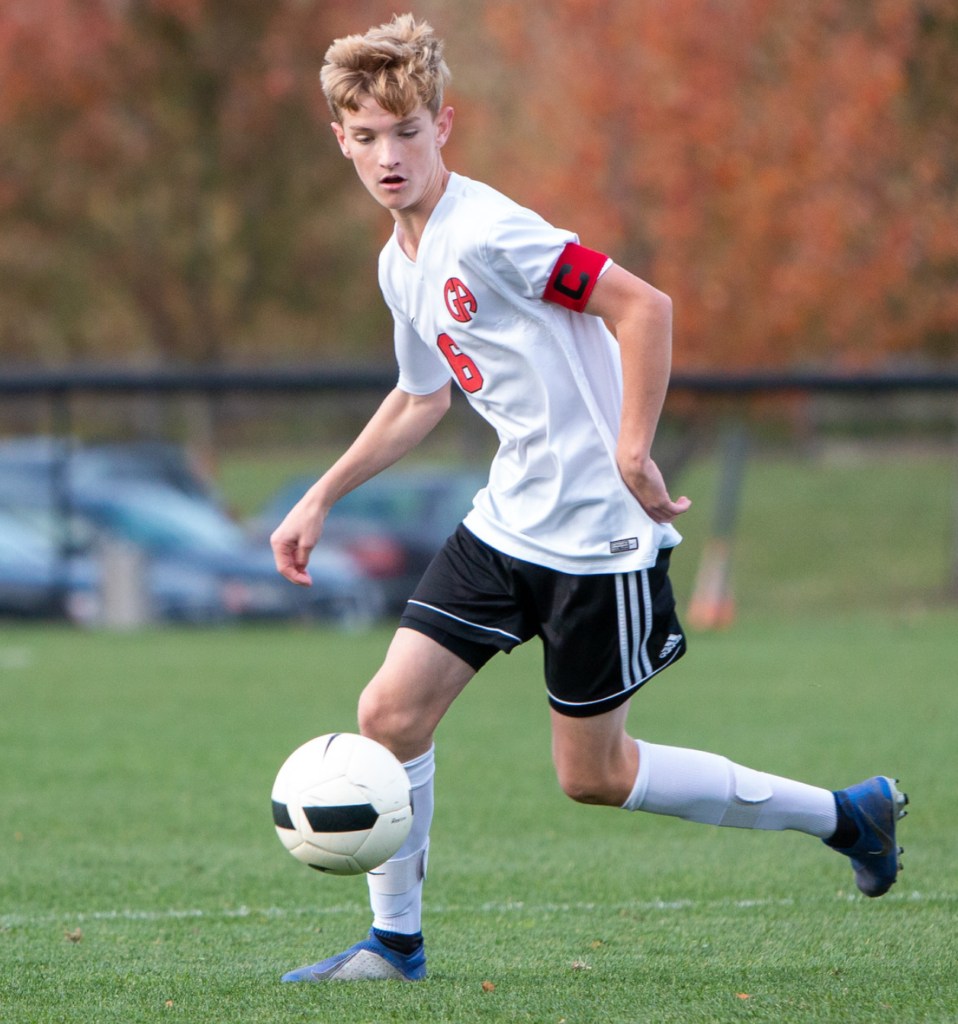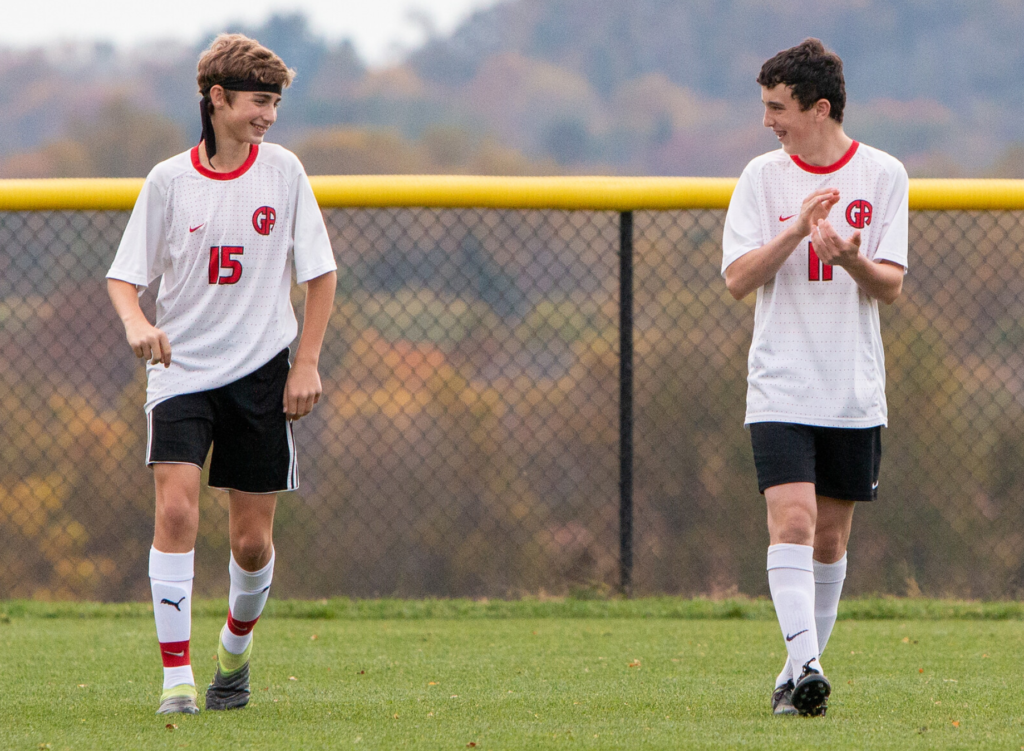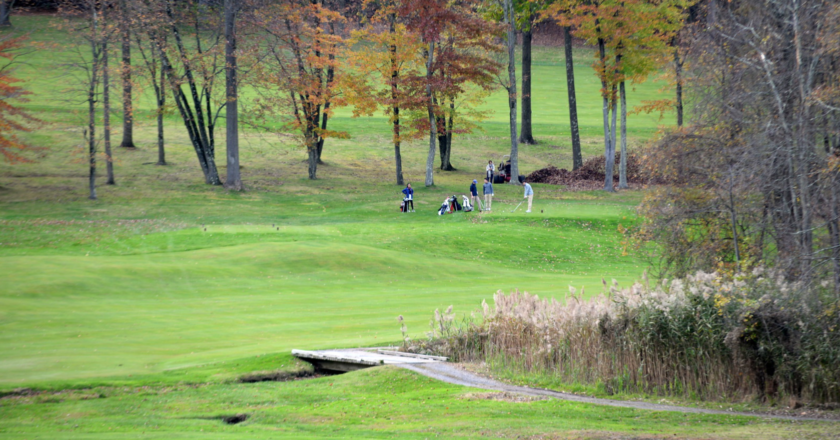
So far, the fall season has been an abnormal and difficult time for athletics across GA. In the face of the pandemic and the InterAc’s temporary cancellation of competition, GA decided to institute a four week period (one week strictly for conditioning) in which fall sports teams could regularly convene and train. In doing so, they hoped to offer students the lively experience and team bonding that a real season offers, while eliminating the risks of playing against other teams. The fall teams have taken a variety of approaches to this “mini-season”, and athletes have displayed a wide range of perspectives on this month of practice.
In order to make the most of the few weeks of training, fall coaches arranged practice schedules in unique ways. Sports such as soccer, football, and field hockey incorporated extra intrasquad scrimmages into their daily practices to give players the opportunity to play and compete. On the other hand, the likes of cross country and golf kept their training regiments similar to years before, with a few intrasquad competitions sprinkled throughout weeks of practice. The varying training regimens for each team surely played a role in the outlooks of GA athletes towards the mini season.

In interviews about the past month’s season, two GA students offered interesting insights into the broad spectrum of opinions held by the student body. When asked about his thoughts on the mini-season, Jamie Amaan ‘20 of the golf team revealed a critical view of the situation. Jamie emphasized how, “we didn’t practice much, the training was only three weeks long, and I had no motivation to do well,” and used these concepts to back his claim that “Fall sports were awful.” Jamie also laid out his concern for the team’s performance once the season restarts, explaining how the break could be detrimental for many GA golfers. Junior Brendan Szczepkowski of the soccer team, on the other hand, presented a more positive outlook on the fall so far. “Although I wished we had games, I thought the training sessions went well and they helped us to get a head start in preparing for a possible season later in the year”. When asked about the possible impacts of the “break” on the soccer team’s performance, Brendan commented that, “Soccer is still continuing to train during the rest of fall, but just less often, so we should be better prepared when we return from break”.
While these two excellent athletes held differing perspectives towards the mini fall season, they conveyed identical mindsets towards the uncertainty of a future season. Jamie described, “I think I’m speaking for a lot of us when I say that we just want our fall season back to get a chance to finally compete and show our skills. I’m not sure if it’ll actually happen anytime soon, but if it does, that would be the dream.” Brendan voiced a similar idea, highlighting how, “The main thing that a lot of people want to be able to play league games again.”

These interviews, conducted in early October, anticipated the exhilaration within the GA community caused by the InterAc’s October 16 decision. On that Friday, the InterAc officially opened the gates for fall competition, indicating that the normal fall season would resume in November. The fall mini season left many high hopes unfulfilled for fall athletes as a whole, and the league’s verdict plants the perfect chance for these soccer, football, field hockey, water polo, golf, and cross country teams to get out there, compete, and bring pride to GA.

